Agrarians: even with new harvest, potato prices will remain higher than last year
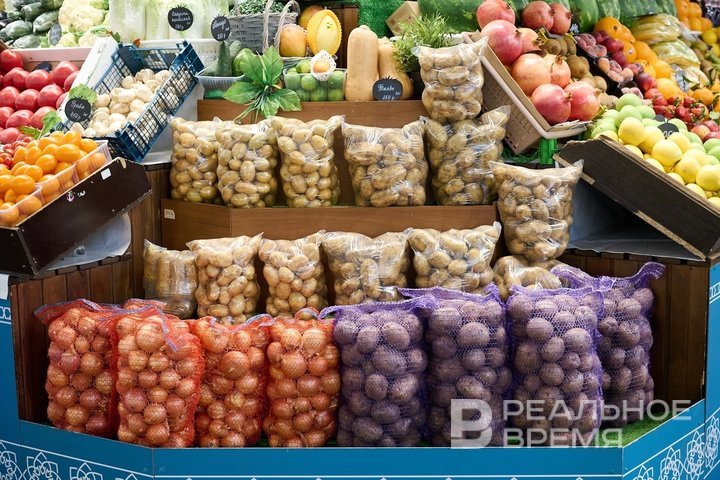
Potato sales are declining in Russia amid high prices. This vegetable is no longer a staple on the table, as the population has replaced it with pasta and bread. According to Rosstat, while in January the average price of the “second bread” was about 60 rubles per kilogram, today retail chains call 90 rubles per kilogram a “super price”, while the average market price exceeds 100 rubles per kilo. In response to the shortage of the vegetable, sowing areas for potatoes have been expanded this year in Tatarstan. Whether this could lead to lower prices and how much it costs farmers to grow potatoes was investigated by Realnoe Vremya.
Additional 1,300 hectares allocated for potatoes
The sowing campaign in Tatarstan has been completed across an area of more than 2.7 million hectares. Compared to last year, the area allocated for potatoes in the republic has increased by more than 1,300 hectares — reaching a total of 5,600 hectares. This was reported by the Ministry of Agriculture and Food of the Republic of Tatarstan.
The increase in potato production volumes in Tatarstan will contribute to strengthening food security both in the region and across the country as a whole, which is an important part of the implementation of the national project “Technological Support for Food Security,” the ministry noted.
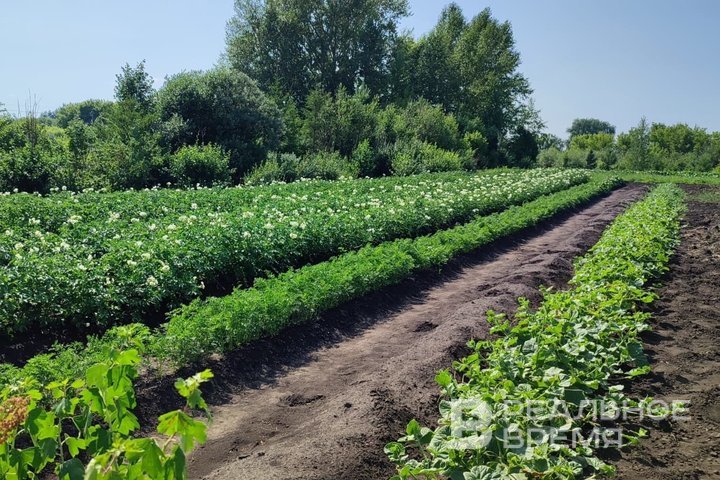
The agricultural enterprise Chistopolskaya has significantly expanded its potato planting area. This year, a total of 2,128 hectares have been planted with the “second bread”. This is 1,489 hectares more than in 2024. All potato fields of this major enterprise will be under irrigation. In the Chistopolsky district, within the same municipality, an investment project is underway — the construction of a French fry production plant with a capacity of 32.4 thousand tonnes per year. The facility is being built by the holding company Chistopolye.

Accordingly, we saw a decline in potato sowing and growth in another segment, the speaker noted. This year, he said, if everyone rushes to increase potato planting areas and reduce other crops, “we may see a distortion in the opposite direction.”
“High prices are a temporary phenomenon”
In the southern regions of Russia, where it is possible to harvest two potato crops per year, the focus in recent years has also shifted to other crops, such as wheat, sunflower, and others. Agrarians have used agricultural land for more high-margin crops.
“Such situations bring to mind the Soviet era and the planned economy, when people at least had a clear understanding of the quantity of a particular product that was needed, and what resources were required to produce it. Based on that, it was clear who should be doing what and what the expected outcome would be. Fortunately or unfortunately, we no longer have a planned economy, and each entrepreneur independently assesses which crop is currently the most profitable to sow in order to maximise profit. Accordingly, such imbalances and distortions may arise from time to time,” Dmitry Gordeyev stated with confidence.

As for the high prices of the “second bread,” the representative of the V.M. Gorbatov Research Centre expressed confidence that this is a temporary phenomenon and that there is no need to panic: “We have already been through this with eggs and buckwheat. There are market surges when a local shortage arises and panic buying begins. Later, the situation stabilises thanks to foreign imports and the development of internal resources, and prices level out. That’s what happened with eggs, for example. Today, they are one of the most affordable sources of protein on the domestic market in the context of inflation.”
“In other years, farmers did not know what to do with this potato”
The view that the nearly threefold increase in potato prices is a temporary phenomenon is also shared by Nafil Gataullin, chairman of the Association of Farmers, Peasant Households, and Agricultural Consumer Cooperatives of the Arsk District. “When there is too much potato, no one even asks how you are doing. But as soon as there is less potato, everyone immediately calls, everyone is interested,” he began the conversation with a joke.

This year, Nafil Gataullin kept the potato planting area at the same level — about 5 hectares. He did not increase it, but also did not reduce it, the farmer said. He plants potatoes using the labour of his large family, only temporarily hiring assistants, so the volumes are small. The head of the peasant farm is confident that many farms increased their potato sowing areas without much desire. Moreover, only large agricultural enterprises could afford to do so.
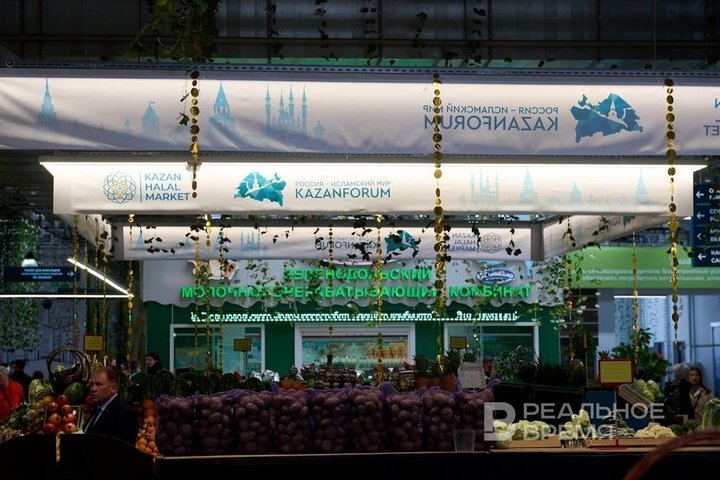
Growing potatoes is a very costly process, he emphasised. “Moreover, no one has any guarantees that they will be able to sell at a decent price. I attend all-Russian seminars, and they say that the costs of growing potatoes with the aim of obtaining a large harvest amount to 350,000 rubles per hectare — which is very high. This involves the use of advanced technologies — equipment and fertilisers, chemicals that need to be applied to the fields at least ten times per season. Meanwhile, the costs that average farms can afford do not exceed 10,000 rubles.” At the same time, the farmer believes that a significant drop in potato prices should not be expected.
“This year, I believe, potatoes will not be cheap even in autumn, and what will happen in spring, only Allah knows. Those who have vegetable storage facilities will try to keep more potatoes for the spring to sell them more profitably. But even in that case, there is no certainty that the entire volume can be sold at a good price. This is all because we have no stability,” Gataullin lamented.
The agricultural producer himself also has a vegetable storage facility with a capacity of three tonnes. He specifically keeps potatoes for spring and early summer. The farmer plans to sell his produce by the Kazan Sabantuy festival. The price per kilogram will be 50 rubles.
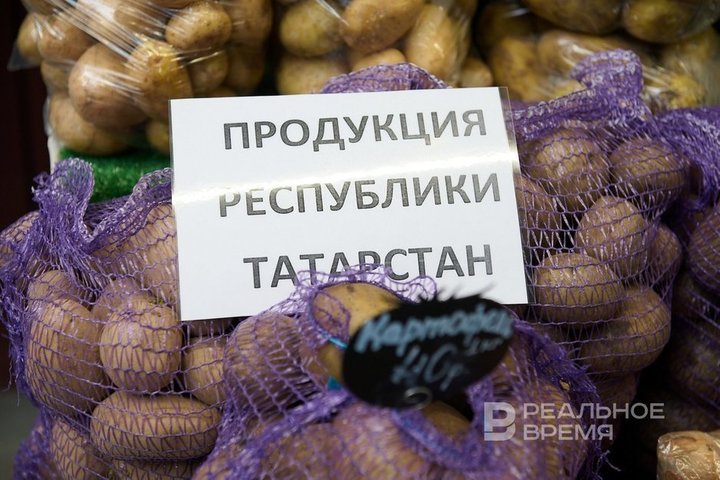
“Loans at 8% now are a dream”
The need to build vegetable storage facilities and implement raw material processing projects is also emphasised by other experts. Dmitry Gordeyev believes that although this sector is currently developing in Russia, there is still room for growth. According to him, if potatoes are stored correctly, preserving their quality and properties, such imbalances in the country will occur less and less. Modern vegetable storage facilities need to be built, and new vegetable varieties that last longer developed, for which biotechnology should be employed, the expert stressed:
“Our institute has been speaking about vegetable storage facilities and other means of food storage for many years. The situation is progressing, but not at the pace we would like. Producers themselves could develop in this area independently with the help of preferential loans and support programmes for small agricultural enterprises. These have become more expensive, but agricultural loans are still cheaper than the loans available to the general public. Although they have risen from 5% to 8–12% now, at least they are not the same 21–30% rates at which we borrow from banks as individuals. One way or another, for agricultural businesses, 8% now is a dream. This situation must be taken advantage of.”
Since 2023, a federal programme has provided state support to agrarians for the development of potato and vegetable farming, under which sowing areas and gross harvests of these crops are funded. Subsidies for potato and vegetable production for medium and large farms are allocated from the republican budget, the Ministry of Agriculture and Food of the Republic of Tatarstan told Realnoe Vremya.
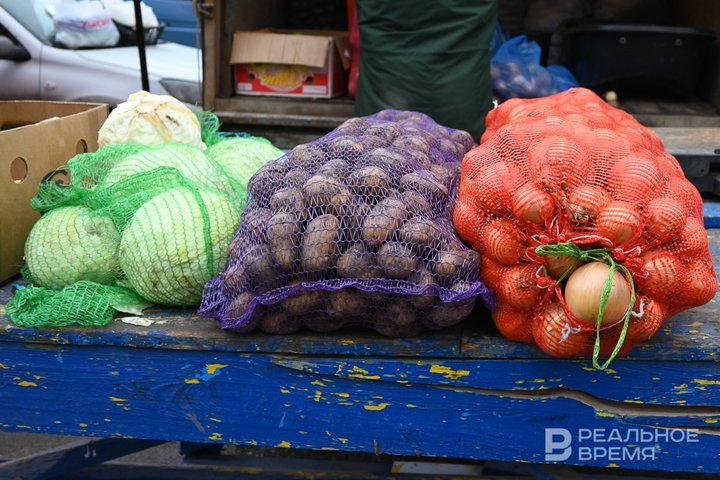
“From this year, funding from the republican budget has been allocated for small-scale farms to cover part of the costs of purchasing mineral fertilisers for farms growing potatoes and open-field vegetables. To encourage potato production in the republic, self-employed personal subsidiary plots are also eligible to receive subsidies for potatoes produced by the households themselves. Subsidy rates have been increased this year from 9 to 18 rubles per kilogram of potatoes sold,” the ministry explained.